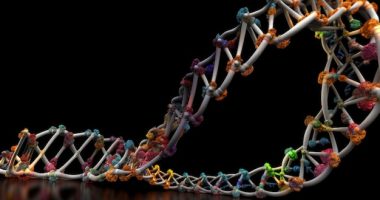Innovative research in the humanities is often hampered by ethical review processes fashioned with a skew towards quantitative and scientific methodologies. This mismatch has provoked scrutiny and critique from academics and researchers alike, as highlighted in recent findings by Jonathan R. Kasstan and Geoff Pearson. Their study, stemming from a UK-wide network consultation funded by the Arts and Humanities Research Council (AHRC), delves into the challenges and shortcomings of current University Research Ethics Committees (URECs) in evaluating qualitative humanities research. The study underscores a persistent dissatisfaction with how ethical approvals are handled, aligning procedures that commonly favor scientific markers of validity and reliability over the nuanced needs of humanities scholarship. This misalignment not only stymies the potential of humanities research but also risks compromising the integrity and fidelity toward the subjects studied. As a result of their comprehensive consultation, Kasstan and Pearson provide a series of tailored recommendations aimed at overhauling these frameworks to foster a more nuanced and effective ethical review process that aligns with the unique characteristics of humanities research. Their work is a clarion call for reforms that promise to enhance the United Kingdom’s academic prowess and uphold its commitment to ethical research practices.
The critical scrutiny directed towards University Research Ethics Committees (URECs) by Jonathan R. Kasstan and Geoff Pearson finds its roots in a broader discourse on the adaptation of research methodologies and ethics in the humanities. Unlike their counterparts in the sciences, researchers in the humanities frequently navigate a landscape marked by subjective analysis, interpretive methods, and cultural critique, which do not always conform neatly to the predominantly quantitative-oriented criteria established by most UREC frameworks.
This disparity between methodological approaches in different fields is neither novel nor trivial. Historically, the establishment of URECs was chiefly influenced by bioethical milestones, particularly those involving medical research on human subjects, such as the Declaration of Helsinki and the Belmont Report. These protocols were designed to protect human subjects from physical harm, a focus that is tangential to many humanities disciplines, where psychological and cultural integrity might be more pressing concerns.
Over time, as research ethics evolved and expanded to encompass all disciplines, URECs implemented a one-size-fits-all approach, largely modeled on frameworks suitable for experimental and clinical research. This approach has brought to light several concerns—for instance, the strict requirements for confidentiality and informed consent are sometimes in practical conflict with research methodologies involving ethnographic fieldwork or historical archive studies in the humanities. Such methods often require a more flexible, context-specific approach to ethics, which current UREC policies may not fully accommodate.
This issue of incompatible ethical scrutiny is compounded by the increasing push within academia for interdisciplinary research, which blends methods from the sciences and humanities. As funding bodies and academic institutions promote such cross-disciplinary endeavors, the limitations of existing ethical review processes have become increasingly apparent. Consequently, many humanities researchers find themselves at odds with the procedural frameworks and understanding of risk ensconced in these predominantly scientifically-oriented ethics committees.
Kasstan and Pearson’s UK-wide network consultation, sponsored by the Arts and Humanities Research Council (AHRC), thus emerges as both timely and crucial. The consultation involved a series of discussions, surveys, and workshops engaging humanities researchers across various stages of their careers, from doctoral students to seasoned scholars. The findings highlighted not just disparities in handling research ethics across disciplines but also a widespread sense of procedural and philosophical misfit, leading many in the humanities to feel undervalued or misunderstood by ethics governance structures.
The demand for reform arises from these ongoing frictions and reflects a major concern that without significant adjustment, ethical review processes may inadvertently inhibit creative and critical insights that humanities research is primed to offer. As such, the work of Kasstan and Pearson stands as an important milestone in a long-standing conversation about the nature and governance of academic research, pointing toward a future where ethical review processes could be as diverse and nuanced as the disciplines they aim to serve.
To effectively address the gaps identified in the ethical review processes affecting humanities research, Jonathan R. Kasstan and Geoff Pearson designed a robust and inclusive methodology for their UK-wide consultation. This approach was multifaceted, incorporating both qualitative and participatory strategies to gather a wide range of insights and perspectives from across the humanities academic community.
**1. Surveys and Questionnaires:** At the outset, the researchers distributed online surveys tailored to capture the varied experiences of humanities researchers with their respective University Research Ethics Committees (URECs). These surveys aimed to chart not only the types of challenges faced but also to gauge the level of satisfaction with current ethical review processes. Key areas covered included questions on the flexibility of ethical approvals, perceived relevance of the guidelines provided by URECs, and the impact of these processes on research methodology and output.
**2. Interviews and Focus Groups:** To delve deeper into the subjective experiences of researchers, Kasstan and Pearson conducted a series of structured interviews and focus groups. These sessions were organized with individual researchers as well as groups, including diverse aspects of humanities from history and literature to philosophy and the arts. These conversations allowed for a richer understanding of the specific issues encountered in various subfields of humanities and provided nuanced insights that surveys alone might not reveal.
**3. Workshops and Discussion Forums:** Recognizing the importance of collaborative dialogue in shaping effective solutions, the researchers hosted workshops that gathered academics, ethicists, and representatives from URECs. These workshops facilitated open discussions about the shortcomings of current ethical processes and explored potential reforms. Key topics included the adaptation of ethics procedures to better accommodate non-empirical research methodologies and the development of criteria that could reflect the unique demands of humanities studies.
**4. Case Study Analyses:** The research also included a review of specific case studies where ethical reviews had significant impacts on the course and outcome of humanities research projects. These cases were instrumental in highlighting practical examples of existing procedural flaws and provided a concrete basis for arguing potential improvements.
**5. Stakeholder Consultations:** Throughout the consultation process, Kasstan and Pearson engaged with key stakeholders, including funding bodies like the Arts and Humanities Research Council (AHRC), university administrators, and policy makers. These consultations ensured that the recommendations would be aligned with broader academic and funding standards, and could be realistically implemented.
By combining these diverse methodologies, Kasstan and Pearson ensured a comprehensive understanding of the complexities and varied dimensions of ethical reviews in humanities research. The data collected was rich and multi-layered, providing a strong empirical foundation for the recommendations they proposed. This inclusive and thorough approach highlighted the researchers’ commitment to fostering an ethical review process that is both equitable and conducive to the advancement of humanities scholarship.
The comprehensive consultation undertaken by Jonathan R. Kasstan and Geoff Pearson revealed several key findings that underscore the pressing need for reform in the ethical review processes applicable to humanities research. These findings not only illuminate the specific challenges encountered by humanities researchers but also strongly suggest nuanced paths forward that could significantly improve the ethical oversight landscape.
**Key Findings:**
1. **Misalignment of Ethical Frameworks:** A predominant concern highlighted by the consultation was the apparent misalignment between the ethical frameworks currently enforced by URECs and the specific needs and methodologies of humanities research. Many participants reported that the existing guidelines, heavily influenced by biomedical and experimental research paradigms, do not adequately address the ethical dimensions unique to humanities. For instance, issues surrounding cultural sensitivity, historical context interpretation, and textual analysis often require a distinct approach compared to clinical or laboratory studies.
2. **Perceived Rigidity of Procedures:** Many humanities researchers expressed frustration over what they perceive as the inflexibility of UREC procedures. This rigidity often results in delays and can sometimes force researchers to modify their research questions or methods unnaturally to fit the prescribed ethical review molds. The consultation emphasized the need for a more adaptable and context-sensitive approach that acknowledges the variable nature of humanities research, where unexpected ethical considerations might emerge from interpretive and iterative processes.
3. **Impact on Research Quality and Integrity:** The findings suggest that the constraints imposed by ill-fitting ethical review processes could potentially compromise the quality and integrity of humanities research. Researchers often face dilemmas wherein conforming to strict ethical guidelines may dilute the authenticity or depth of their analysis, particularly in studies that involve sensitive historical documents or vulnerable populations, bearing profound cultural significance.
4. **Communication and Understanding Gaps:** There appears to be a significant gap in communication and mutual understanding between humanities researchers and UREC members. Often, ethic committees lack sufficient expertise in humanities disciplines, leading to misinterpretations and misapplications of ethical standards. This gap not only frustrates researchers but also undermines the trust and collaborative potential between these groups.
5. **Need for Specialized Training and Guidance:** There is a clear demand for better training and specific guidance for both UREC members and humanities researchers. Enhanced training could help ethic committee members appreciate the unique challenges and ethical considerations of humanities research, while specific guidance could assist humanities researchers in effectively navigating the ethics approval process.
**Consequences and Recommendations:**
Based on these findings, Kasstan and Pearson proposed a number of recommendations designed to bridge the identified gaps and foster a more supportive ethical review environment. These recommendations include:
– **Development of Specific Ethics Guidelines for Humanities:** The researchers advocate for the creation of tailored ethics guidelines that specifically address the methodologies and ethical considerations pertinent to various humanities disciplines.
– **Flexible and Adaptive Ethical Review Processes:** They suggest implementing more adaptable processes that can respond dynamically to the specific needs of humanities research projects.
– **Enhanced Training Programs:** Kasstan and Pearson recommend establishing targeted training programs for UREC members that focus on the nuances of humanities research, as well as for humanities researchers to better prepare them for the ethics review process.
– **Increased Humanities Expertise on Ethics Committees:** To improve understanding and communication, the inclusion of more humanities scholars on ethics committees was suggested as a critical step towards more equitable and effective ethical evaluations.
The findings and recommendations presented by Kasstan and Pearson serve as a foundational step towards reconfiguring ethical review frameworks to be as diverse and nuanced as the fields they intend to regulate. Such changes are essential not only for the advancement of humanities research but also for ensuring that ethical scrutiny enhances, rather than impedes, academic exploration and innovation.
The meticulously conducted UK-wide consultation by Jonathan R. Kasstan and Geoff Pearson brings to light the inadequacies of current ethical review processes in addressing the unique demands of humanities research. The feedback from academics across various disciplines exhibits a strong collective desire for reforms that resonate more closely with the interpretive and cultural dimensions of humanities scholarship. The findings and subsequent recommendations offer a pivotal opportunity for academic institutions and policymakers to reassess and revitalize the ethical infrastructure, thereby promoting an environment where humanities research can thrive within the appropriate ethical boundaries.
Looking forward, the implications of implementing these proposed changes are vast. By tailoring ethical review processes to better suit the humanities, universities can foster a culture of research that is not only rigorous but also more inclusive and representative of diverse scholarly practices. The suggested reforms such as dedicated ethics guidelines for the humanities, flexible review processes, and specialized training programs provide a framework for a more nuanced approach to research ethics, potentially setting a benchmark for global academic communities.
However, the journey towards these reforms will require concerted efforts and a sustained commitment from various stakeholders within academia and beyond. It involves navigating institutional inertia, resource allocation, and potential resistance from those accustomed to the conventional procedures. Furthermore, consistent evaluation and adaptation of these new measures will be crucial to ensure they meet the evolving needs of humanities researchers without compromising ethical standards.
The integration of more humanities scholars into ethics committees represents another critical step forward. Their presence can facilitate a deeper understanding and appreciation of the context-specific nuances that characterize humanities research, thereby enhancing the quality and relevance of ethical scrutiny. Such interdisciplinary collaboration can also pave the way for innovative approaches to ethics reviews, drawing on insights from both scientific and humanistic traditions to forge more balanced and comprehensive frameworks.
Moreover, the dialogues generated by Kasstan and Pearson’s study highlight the importance of ongoing discussion and feedback loops between humanities researchers and ethics committees. Establishing regular platforms for dialogue can help in continuously refining the processes and addressing any emerging challenges or gaps. These forums could also serve as a valuable educational tool, demystifying the ethics review process for new researchers and promoting a culture of ethical mindfulness across the academic community.
In conclusion, the call for an overhaul of the ethical review process in humanities research is not merely a bureaucratic concern but a significant step towards ensuring that research practices are both ethically sound and intellectually vibrant. By embracing these changes, the academic community can better support the rich, diverse, and complex nature of humanities research, fostering advancements that contribute profoundly to our understanding of human culture and history. This reform is not an endpoint but a starting point for a more dynamic and ethically sensitive research landscape in the humanities. Moving forward, it will be imperative to monitor the impact of these changes, adaptively fine-tuning strategies to best support the continuous growth and ethical integrity of humanities scholarship.









